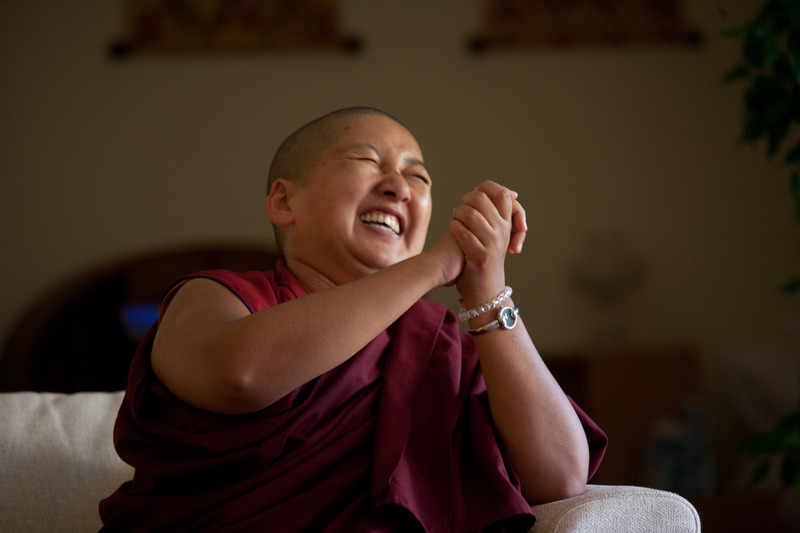A young Tibetan uses her unique status to empower Buddhist women in the East and West.
Jetsun Khandro Rinpoche's position in the Buddhist world is entirely unique. She is one of the very few fully trained female incarnations in the Tibetan tradition. Born in 1968 as the daughter of the late Kyabjé Mindrolling Trichen, she, her younger sister and her mother were the only women growing up among 400 monks at her father's monastery in India. With her unparalleled upbringing and training, she has built a reputation as an uncompromising, sharp-witted and unconventional teacher who is never afraid to "rock the boat" as she continues to question the responsibility and role of women in the Buddhist society. Though Khandro Rinpoche downplays her own significance, her influence both in the East and West can hardly be overstated. Educating and empowering women is at the core of her work. In the book Dakini Power, she opens up about her upbringing, her family and her vision: "Maybe I can be a medium through which more women become confident, dynamic leaders."
The Mindrolling lineage is one of the rare Tibetan traditions that do not distinguish between male and female heirs. Now one of the most influential and vibrant women teachers, Khandro Rinpoche jetsets tirelessly between her late father's monastery and her own two nunneries in India, her American headquarters Lotus Gardens in the Shenandoah Mountains in Virginia, and an ever-increasing number of Buddhist communities who are keen to benefit from her sharp acumen. In addition to receiving the traditional training usually reserved for male teachers, she also studied journalism, business management, homeopathy and sciences.
Why are there not more women like her, not more female Tibetan Buddhist teachers? Khandro Rinpoche points out that there were many realized female practitioners in Tibet, "but they stayed away from the great monasteries, the powerhouses." Even if they did not assume lofty titles or hold court in monasteries, the Tibetans revered them. At the same time, she agrees that the need for female teachers is immense."
In this interview with Dutch filmmaker Babeth VanLoo, Khandro Rinpoche speaks about encouraging strong female leaders: "You have to learn to break free. You have to learn to be a little less predictable."
The trailer is part of a longer documentary for the Buddhist Broadcasting Foundation:

